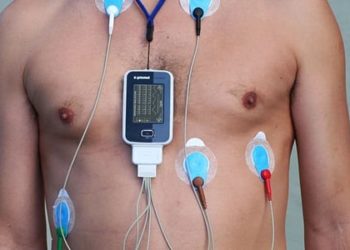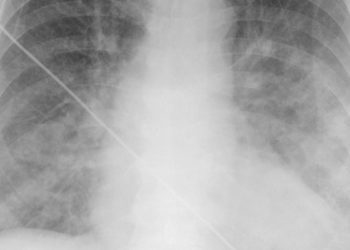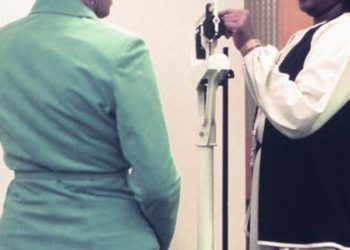The MADIT-CRT trial: Cardiac resynchronization therapy in heart failure [Classics Series]
1. In patients with heart failure, reduced left ventricular ejection fraction, and prolonged QRS>130 ms, treatment with cardiac resynchronization therapy (CRT), in addition to implantable cardioverter-defibrillator (ICD), significantly reduced the risk of heart failure events when compared with patients only receiving ICD.
2. The rates of device-related complications were similar between the two groups both in short- and long-term follow-up.
Original Date of Publication: October 2009
Study Rundown: In patients with severe heart failure and reduced left ventricular ejection fraction, treatment with an implantable cardioverter-defibrillator (ICD) has been shown to reduce mortality. On the other hand, prolonged defibrillator therapy has been shown to increase the likelihood of suffering from heart failure events. Cardiac resynchronization therapy (CRT) involving biventricular pacing has been shown to reduce the risk of heart failure exacerbation in specific patients with severe heart failure. The purpose of the Multicenter Automatic Defibrillator Implantation Trial with Cardiac Resynchronization Therapy (MADIT-CRT) trial was to determine whether CRT in combination with an ICD would reduce the risk of death or nonfatal heart failure events in patients with left ventricular ejection fraction (LVEF) <30%, QRS >130 ms, and NYHA class I or II symptoms. In summary, patients treated with ICD-CRT were significantly less likely to experience nonfatal heart failure events when compared to those treated with ICD alone. There was no significant difference between the groups in all-cause mortality. Notably, this study was stopped prematurely because prespecified efficacy thresholds were achieved.
Click to read the study in NEJM
In-Depth [randomized controlled trial]: This study was conducted at 110 centres from across Canada, the United States, and Europe. A total of 1,820 patients were randomized to receive either ICD only or ICD-CRT. Patients were eligible for the study if they were 21 years or older, with NYHA class I or II symptoms, sinus rhythm, LVEF <30%, and QRS duration >130 ms. All eligible patients also had an indication for ICD. Exclusion criteria included an existing indication for CRT, NYHA class III or IV symptoms, previous coronary artery bypass grafting, or myocardial infarction in the 3 months prior to randomization. The primary endpoint was all-cause mortality or nonfatal heart failure events, and analysis was performed using intention-to-treat principle.
The trial was stopped prematurely after prespecified efficacy threshold was achieved. The primary endpoint was significantly less likely to occur in the ICD-CRT group as compared with the ICD group (HR 0.66; 95%CI 0.52-0.84). This difference was driven by a significant reduction in nonfatal heart failure events (HR 0.59; 95%CI 0.47-0.74), while there was no difference between the groups in all-cause mortality (HR 1.00; 95%CI 0.69-1.44). These findings were true for both patients with ischemic and non-ischemic cardiomyopathy. One death occurred in the ICD-CRT group after device implantation due to pulmonary embolism. In the first 30 days after device implantation, the rates of pneumothorax, infection, and pocket hematoma were similar in the two groups. Rates of device-related adverse events were also similar in longer term follow-up.
©2015 2 Minute Medicine, Inc. All rights reserved. No works may be reproduced without expressed written consent from 2 Minute Medicine, Inc. Inquire about licensing here. No article should be construed as medical advice and is not intended as such by the authors or by 2 Minute Medicine, Inc.





![Diacylglycerol kinase α is a potential target for X-linked lymphoproliferative disease treatment [PreClinical]](https://www.2minutemedicine.com/wp-content/uploads/2016/01/1280px-Epstein_Barr_Virus_virions_EM_10.1371_journal.pbio_.0030430.g001-L-75x75.jpg)

